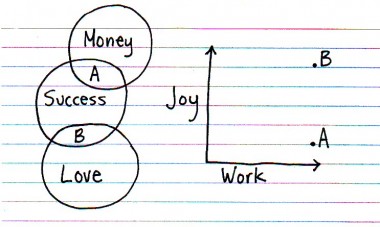Have you ever contemplated your own death?
DEATH… it’s not a subject that many people want to contemplate, but it is inevitable and none of us get out of this life alive!
Due to my profession and the community work that I have chosen to be engaged in death is a subject that I regularly encounter, but over the past day a couple of things have crossed my path that led to me asking you the question about contemplating your death, so I thought I would share them with you…
from the Dhammapada…
Firstly a section of the Dhammapada, that deals with ageing and death:
“Look at the body adorned, A mass of wounds, draped upon a heap of bones, A sickly thing, this subject of sensual thoughts! Neither permanent, nor enduring!
The body wears out, A nest of disease, Fragile, disintegrating, ending in death.”
from an outstanding blogger…
yet another timely and astounding piece from Jessica Hagy that she has titled “The Crux of Deathbed Regrets”
from a set of lessons which help guide my life..
“… a time will most assuredly come when death that great leveler of all mankind, reduces us to the same state and the best and the brightest of us knows not when…”
Your death?
If you contemplate your own immortality, and the reality that your time is limited but you just don’t know how limited, what does your own death mean to you?
Now that this thought is in the forefront of your mind… what people matter most in your life and what are you going to do about showing them how much you appreciate them?
Share your thoughts in the comments…


